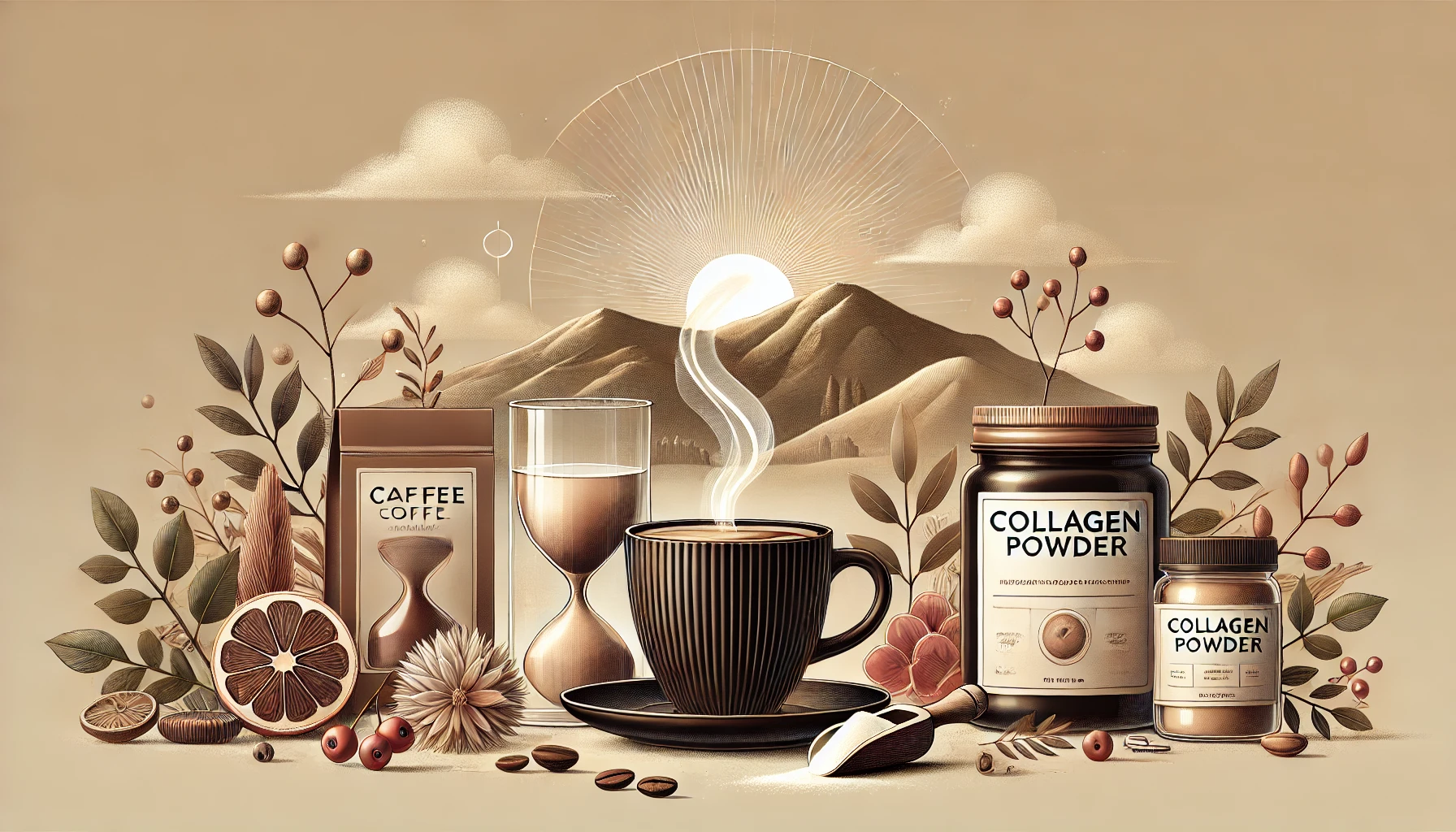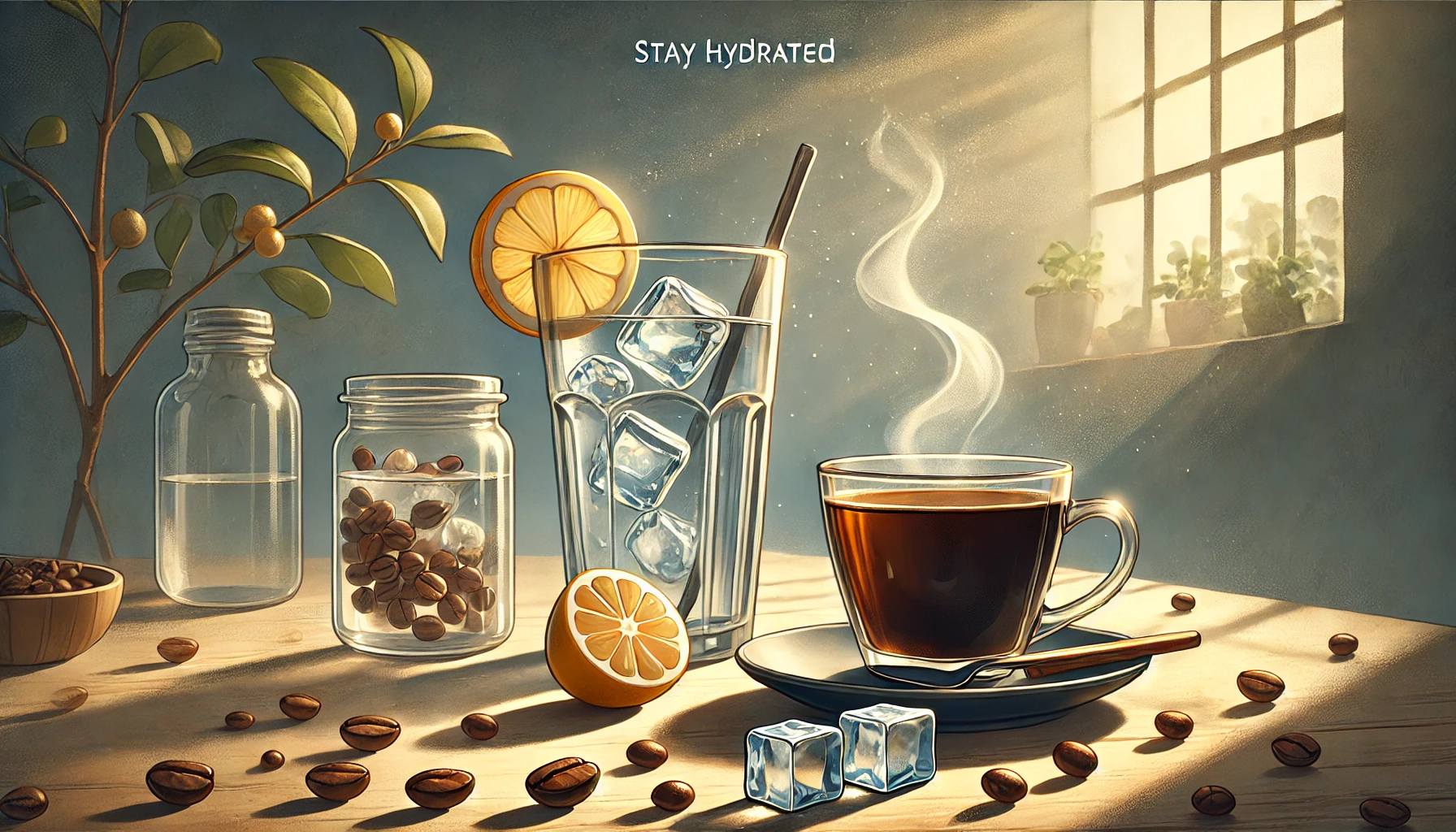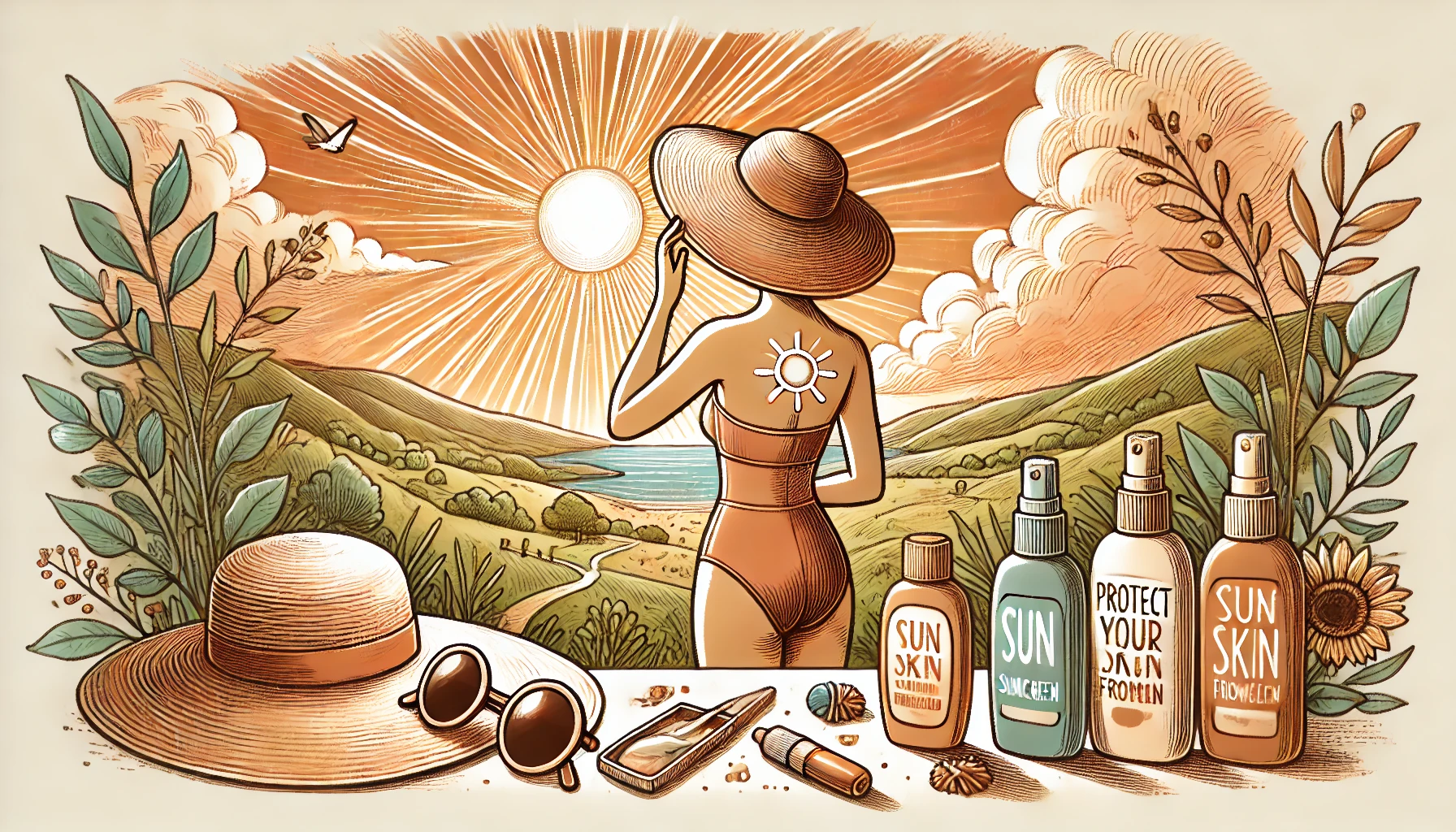Introduction
Coffee, a beloved ritual for millions, is more than just a beverage—it’s a cultural staple, a morning motivator, and often a comforting companion through the day. From rich espressos to frothy lattes, coffee has woven itself deeply into our routines and lifestyles. But as people become more mindful of health and longevity, one question lingers in the minds of coffee lovers everywhere: could their cherished brew be affecting the way they age?
While coffee is praised for its invigorating effects, some wonder if there are hidden consequences for skin health and overall appearance. Could caffeine be a double-edged sword, providing alertness while subtly impacting skin hydration, elasticity, or even collagen levels? Or does coffee’s high antioxidant content counterbalance any potential drawbacks, lending protective benefits that could preserve a youthful glow?
This exploration dives into the science behind coffee’s influence on the skin, examining both the myths and the facts. From understanding caffeine’s effects on hydration to discovering how antioxidants in coffee may support cellular health, this guide provides a comprehensive look at how to enjoy coffee responsibly. For those who cherish their daily cup yet also value a radiant complexion, knowing how to balance these two desires could be the key to long-term vitality and beauty.
Affiliate Disclaimer
This blog post may include links to affiliate sites. If you click on an affiliate link and make a purchase, we may earn a small commission or receive other compensation at no extra cost to you. Please note that many of the links on our site are affiliate links. Our use of these links does not impact the products, services, or websites we recommend to you. This disclaimer covers all forms of communication with you, including our website, email, phone, social media, products, and other platforms.
Amazon Affiliate Disclaimer
We participate in the Amazon Services LLC Associates Program, an affiliate marketing program that allows us to earn fees by linking to Amazon.com and its affiliated sites. If you click on an Amazon affiliate link on our site and make a purchase, we may receive a small commission at no additional cost to you.
Does Coffee Age You? Uncovering the Basics
Coffee and Aging: What’s the Connection?
Coffee has an undeniable influence on our bodies, primarily due to its central component, caffeine. Caffeine acts as a powerful stimulant that interacts with various bodily systems, including the nervous system, blood vessels, and skin. Most people associate coffee with an energy boost or heightened focus, but its effects go beyond simple stimulation. For those concerned with skin health, caffeine's impact on hydration, collagen, and elasticity is especially relevant.
The connection between coffee and aging lies in a delicate balance. On the one hand, caffeine can support alertness and even provide some antioxidant benefits; on the other, it may contribute to skin issues if consumed in excess. The link between coffee and skin aging revolves around several factors: dehydration, loss of elasticity, and reduction in collagen production. These factors combined can affect the skin’s natural suppleness and vitality, making it essential for coffee lovers to understand how these processes work and how to mitigate potential drawbacks.

Caffeine and Collagen: A Key Factor
Collagen is a fundamental protein responsible for skin elasticity, strength, and structure. It plays a pivotal role in maintaining a youthful appearance, providing the skin with a smooth, firm texture. Unfortunately, collagen naturally diminishes with age, which contributes to wrinkles and sagging skin. For coffee drinkers, this process may be compounded by caffeine’s impact on collagen synthesis. Some studies suggest that excessive caffeine intake can interfere with the body’s ability to produce collagen, particularly in cases of dehydration. Without sufficient collagen, skin loses its resilience, becoming more prone to fine lines and other signs of aging.
Caffeine’s potential interference with collagen production doesn’t mean coffee must be avoided entirely. Rather, it highlights the need for moderation. When coffee consumption is balanced with proper hydration and a diet rich in collagen-supporting nutrients, the effects on skin elasticity can be mitigated. For those who prioritize a youthful appearance, understanding caffeine’s role in collagen health is key to developing mindful coffee habits.
Does Coffee Dehydrate Skin?
One of the primary concerns about coffee and aging is caffeine’s diuretic effect, which encourages fluid loss and can lead to dehydration. When we lose fluids, the skin is often one of the first areas to show signs of dehydration. Dehydrated skin tends to appear dull and lacks the plump, dewy radiance associated with youthful skin. Additionally, dehydration can make fine lines and wrinkles more noticeable as the skin’s surface becomes less smooth.
While coffee alone may not be the sole culprit of dry skin, it does contribute to an overall dehydrating effect, especially when consumed in large amounts without adequate water intake. Many coffee lovers overlook the importance of balancing each cup of coffee with an equivalent amount of water. This simple step helps prevent the skin from becoming overly dry or dull.
For coffee drinkers committed to skin vitality, staying hydrated is one of the easiest ways to counteract the effects of caffeine. By balancing coffee with sufficient water intake and possibly adding foods high in water content, such as fruits and vegetables, coffee enthusiasts can enjoy their daily brews without compromising their skin’s health and radiance. In this way, coffee can remain a valued part of their routine rather than a contributor to premature aging.
Does Coffee Age You? Separating Myths from Facts
The Debate Around Coffee and Aging
The question “Does coffee age you?” has sparked a lively debate among wellness enthusiasts and coffee lovers alike. Some argue that the caffeine in coffee accelerates signs of aging, while others believe that its rich antioxidant profile offers protective benefits. To get to the bottom of this, it's important to examine the most common myths and counter them with scientific insights. By doing so, we can better understand how coffee fits into a lifestyle that supports both health and longevity.
Myth: Coffee Leads to Premature Wrinkles
One of the most persistent myths is that coffee directly causes wrinkles. The idea stems from caffeine’s diuretic properties, which can increase fluid loss and, theoretically, contribute to dry skin. Dehydrated skin often appears more prone to fine lines, leading to the assumption that coffee drinkers are more likely to develop wrinkles prematurely. However, the reality is more nuanced.
While it's true that caffeine can promote dehydration, the effect is relatively mild, especially when compared to other diuretics. For most individuals, moderate coffee consumption—especially when paired with proper hydration—does not lead to significant skin dryness. Drinking water alongside coffee can effectively balance out any fluid loss, minimizing the risk of dehydration-related skin issues. So, the notion that coffee is a direct cause of wrinkles doesn’t hold up when balanced with a healthy lifestyle.
Myth: Coffee Damages Collagen Beyond Repair
Another misconception is that coffee consumption irreparably damages collagen, the protein responsible for skin firmness and elasticity. Collagen production naturally slows down as we age, which is why maintaining healthy levels is key to preserving a youthful appearance. The belief that coffee hinders collagen production comes from concerns about caffeine’s potential impact on collagen synthesis and skin regeneration. However, research in this area is still inconclusive.
In reality, while high doses of caffeine might influence collagen levels in some cases, typical coffee consumption is unlikely to significantly affect collagen production for the average person. Moreover, coffee's high concentration of antioxidants can actually support skin health by combating free radicals, which are known to break down collagen. This means that when enjoyed in moderation, coffee may not pose a threat to collagen, as some believe it does.

The Role of Antioxidants in Coffee
The antioxidant content in coffee often gets overshadowed by concerns about caffeine. Yet, these antioxidants—specifically polyphenols—are powerful allies in the fight against aging. They help neutralize free radicals, unstable molecules that can damage skin cells and accelerate aging. By reducing oxidative stress, the antioxidants in coffee can promote healthier skin, potentially offsetting some of the negative effects associated with caffeine.
Polyphenols can also support the skin’s natural barrier function, which helps retain moisture and resilience. This makes coffee more than just a morning pick-me-up; it can be a source of skin-loving compounds when included as part of a balanced diet. Understanding this aspect of coffee provides a more comprehensive view of its relationship with skin health.
Fact: Moderation and Balance Are Essential
So, does coffee age you? The answer lies in how you consume it. Like many things in life, moderation is key. Consuming excessive amounts of coffee can exacerbate certain skin conditions, especially if it leads to disrupted sleep or excessive fluid loss. However, moderate coffee drinking—typically defined as 1 to 3 cups per day—has not been shown to cause significant aging effects.
Balancing coffee with a nutrient-rich diet, proper hydration, and a good skincare routine can help mitigate any potential downsides. For those who savor their daily brew, choosing lower-acid coffee varieties and maintaining a consistent intake of water can make a noticeable difference in skin appearance. This approach allows coffee lovers to enjoy their habit without sacrificing their skin’s health and radiance.
Myth vs. Reality: A Balanced Perspective
In the end, the relationship between coffee and aging is not black and white. While certain aspects of caffeine may contribute to dryness or sleep disruption, these can be managed with mindful habits. At the same time, the antioxidants in coffee provide a counterbalance that can support skin health. For coffee enthusiasts, the key is to understand these dynamics and enjoy coffee as part of a holistic lifestyle that prioritizes both enjoyment and self-care.
By debunking the myths and acknowledging the facts, it’s clear that coffee need not be seen as a culprit in the aging process. Instead, when consumed wisely, it can remain a cherished part of a vibrant and balanced life.
Expert Tips for Coffee Lovers Concerned About Aging
Choose the Right Type of Coffee
When asking, “Does coffee age you?” one of the best places to start is with the type of coffee you’re consuming. Coffee varies significantly in acidity, caffeine content, and antioxidant levels, all of which can impact skin health differently. Opting for low-acid coffee varieties, such as dark roasts or cold brew, may be gentler on the skin, especially for those with sensitivities. Lower acidity reduces the chance of inflammation, which can make skin appear irritated or aged over time. Cold brew coffee, in particular, has a naturally smooth profile and is less likely to upset the skin’s balance, making it a favored choice among those mindful of their complexion.
Moderation: The Golden Rule
The amount of coffee consumed plays a significant role in its impact on the skin. While coffee offers benefits, overindulging can lead to issues like dehydration, disrupted sleep, and, potentially, faster skin aging. Experts recommend limiting intake to around one to three cups per day. This level allows coffee lovers to enjoy the energy boost and antioxidants without overloading with caffeine, which can contribute to moisture loss and collagen breakdown. Drinking coffee in moderation and balancing it with ample water helps maintain the skin’s hydration and elasticity.
Stay Hydrated Alongside Your Coffee
Coffee is a natural diuretic, which means it encourages the body to expel water. If you’re a regular coffee drinker, maintaining hydration is essential. Each cup of coffee should ideally be paired with a glass of water to counterbalance any dehydrating effects. Hydration supports skin health by keeping cells plump, reducing the appearance of fine lines, and enhancing the skin’s natural glow. Integrating hydrating foods, such as fruits and vegetables with high water content, can also help maintain moisture levels for a fresher, more youthful complexion.

Timing Matters
For those who love coffee but worry about aging, consider the timing of your coffee breaks. Drinking coffee in the early part of the day helps prevent interference with sleep, which is essential for skin repair and regeneration. Caffeine’s stimulating effects can linger for hours, so limiting coffee intake in the afternoon or evening ensures better rest, giving your body time to rejuvenate. Quality sleep is a cornerstone of healthy skin, supporting cell turnover and reducing stress-related aging signs.
Antioxidant-Rich Skincare as a Complement
Coffee’s antioxidants offer significant benefits, but combining them with an antioxidant-rich skincare routine can further bolster skin health. Look for skincare products containing vitamins C and E, green tea extract, or niacinamide. These ingredients combat free radicals, protect collagen, and improve skin tone, working in tandem with the antioxidants in coffee to reduce signs of aging. Applying antioxidant serums or creams in the morning adds an extra layer of defense, particularly valuable for coffee drinkers who want to maintain their skin’s youthful vitality.
These expert tips offer a balanced approach, allowing you to enjoy your coffee habit while supporting your skin’s longevity. By making mindful choices around the type of coffee, hydration, timing, and skincare, coffee lovers can enjoy their favorite brew without compromising their skin’s health or vibrancy.
Beyond Coffee: Lifestyle Tips for Radiant Skin
Prioritize Quality Sleep
If you’re wondering, “Does coffee age you?” consider the impact on your sleep habits. Sleep is one of the most powerful rejuvenators for the skin, allowing the body time to repair and regenerate cells. During deep sleep, the body boosts blood flow to the skin, which helps with collagen production and reduces the appearance of fine lines. Quality sleep also minimizes stress hormones like cortisol, which can contribute to dullness and breakouts. Aim for 7–9 hours of uninterrupted rest to support your skin’s natural radiance. Reducing late-day caffeine intake can improve sleep quality, providing an extra benefit for those concerned with skin aging.
Fuel Your Skin with a Balanced Diet
A nutrient-rich diet is vital for skin health and radiance. Incorporate foods that are high in antioxidants, vitamins, and healthy fats, as these nutrients protect against oxidative stress and support skin elasticity. Leafy greens, berries, and fatty fish like salmon are excellent sources of vitamins C and E, which help to fight free radicals and prevent premature aging. Foods high in omega-3 fatty acids, like walnuts and chia seeds, can boost the skin’s moisture barrier, making it appear plumper and more youthful. Balancing your coffee intake with skin-friendly foods can further counteract any aging effects and enhance your complexion.
Stay Active for a Natural Glow
Regular exercise boosts blood circulation, delivering essential nutrients and oxygen to the skin. This natural boost in blood flow promotes a healthy, vibrant complexion and accelerates cellular turnover, which keeps the skin looking fresh. Physical activity also reduces stress, helping to manage cortisol levels, which, when elevated, can lead to breakouts and early signs of aging. Incorporating at least 30 minutes of exercise into your daily routine supports both body and skin health, adding a natural glow that coffee alone can’t provide.

Protect Your Skin from the Sun
While many consider, “Does coffee age you?” few realize that sun exposure is one of the primary causes of premature aging. Daily sun protection is crucial to prevent damage from UV rays, which can lead to wrinkles, sunspots, and a loss of elasticity. Applying a broad-spectrum sunscreen with SPF 30 or higher is one of the simplest and most effective ways to keep skin youthful and radiant. Wearing hats and seeking shade during peak sunlight hours can also shield the skin from harmful rays, reinforcing other skincare and dietary efforts.
By embracing these lifestyle habits, coffee lovers can enjoy their brew without worrying about its potential impact on aging. Balanced nutrition, exercise, quality sleep, and sun protection create a holistic foundation for radiant, resilient skin.
Conclusion
The question, “Does coffee age you?” is multifaceted, with answers rooted in balance and mindful choices. Coffee offers a range of benefits, from antioxidants that combat free radicals to an invigorating boost that enhances daily focus. However, excessive consumption can lead to dehydration and potentially impact collagen, both of which can subtly affect the skin’s youthful appearance over time.
Fortunately, with simple adjustments—like moderate intake, staying hydrated, and prioritizing nutrient-rich foods—coffee lovers can continue to enjoy their favorite beverage without compromising their skin’s radiance. Integrating a holistic approach that includes quality sleep, regular exercise, and sun protection further supports a vibrant complexion, letting you savor each cup with confidence.
In the end, coffee can be enjoyed responsibly as part of a healthy lifestyle, contributing positively to both the mind and the skin. By embracing balance and nourishment, you can relish your coffee habit while keeping your skin resilient and radiant for years to come.


